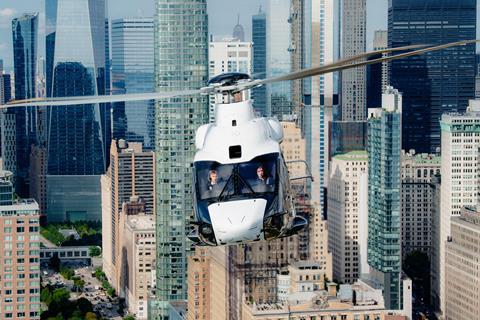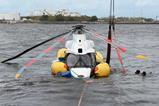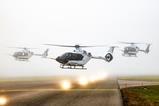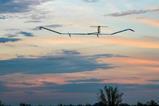Airbus Corporate Helicopters is confident that it will hand over the first ACH160 in the USA in early 2024 following certification of the medium-twin by the Federal Aviation Administration (FAA) in June this year.
Speaking at a pre-NBAA press conference on 16 October, Treg Manning, vice-president of sales and marketing North America for Airbus Helicopters said it has five ACH160s “on the ground waiting for delivery” to customers in the USA and Canada.

Pilot training is ongoing, he says, “and we expect it to be in service [in the USA] in the first quarter of 2024”.
Transport Canada certification should also be wrapped up by year-end, he adds.
In a further sign of confidence in the market appeal of its newest helicopter, the manufacturer has also brought an ACH160 to the NBAA event for the first time where it is being showcased on the static display.
Customers in the USA have been patiently waiting for their new helicopters ever since the airframer received European approval for the rotorcraft in the summer of 2020.
US validation was expected to follow shortly afterwards but the process dragged out for three years as the FAA reacted to oversight issues exposed by the Boeing 737 Max crisis by slowing the certification process for all new aircraft. An issue with the H160’s multi-function displays also contributed to the lengthy wait.

Frederic Lemos, head of ACH, says the new helicopter is the “perfect aircraft” to replace older in-service medium types, including the Sikorsky S-76C, Leonardo Helicopters AW139 and Airbus’s own AS365 Dauphin. The airframer currently holds 30 orders for the ACH160.
Meanwhile, Manning also sees interest from the North American market for the bigger ACH175.
“We are seeing demand for it in North America: we started talking about getting FAA certification and immediately began getting calls,” he says. US approval should come next year, he adds.































